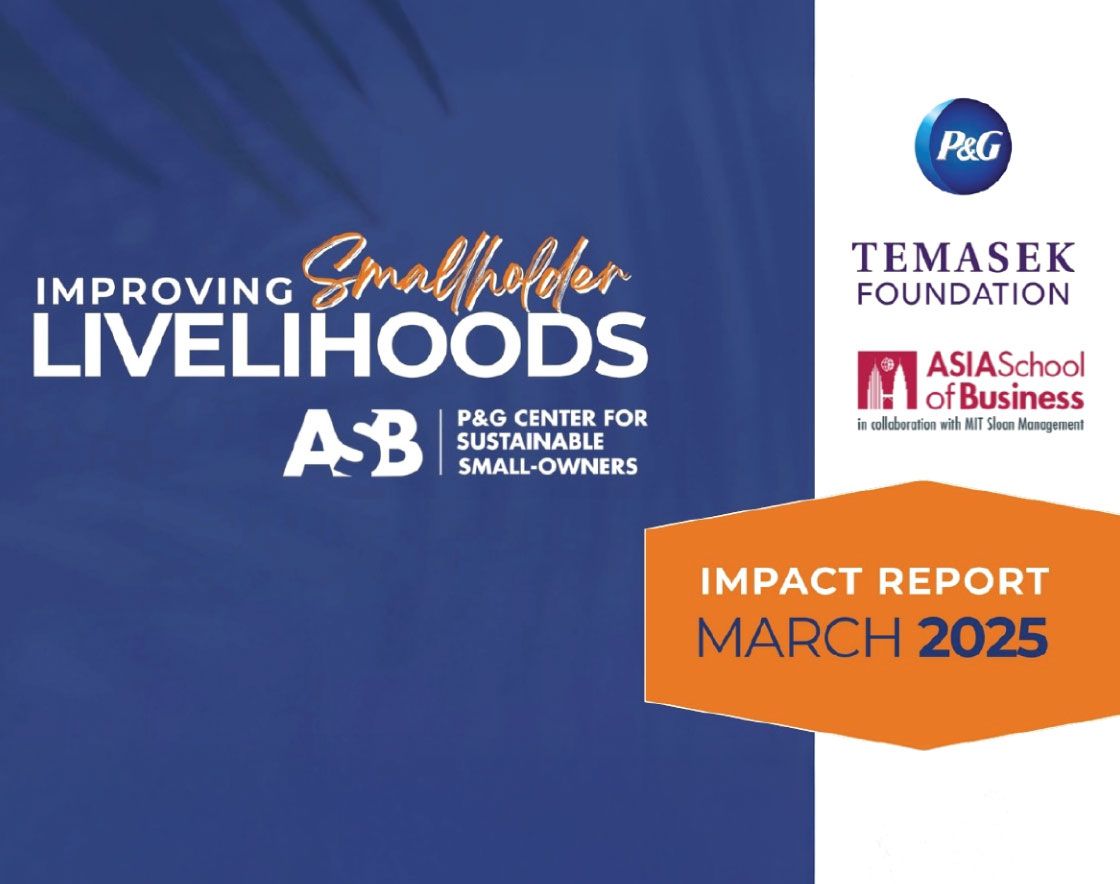The P&G Center for Sustainable Small-owners (CSS), housed at the Asia School of Business in collaboration with MIT Sloan, has released its 2025 Impact Report, marking five years of measurable progress in reshaping the future of Malaysia’s palm oil sector.
The mission of CSS is clear: elevate smallholder livelihoods while promoting responsible, sustainable palm oil production. In an industry where independent farmers often operate at the margins of global supply chains, the centre has built pathways that connect sustainability with prosperity.
Globally, smallholders produce over 40 percent of the world’s palm oil. Yet, many remain underrepresented in formal supply chains due to the high barriers of certification, limited access to finance and information gaps. In Malaysia, where independent smallholders account for 17 percent of total producers, their inclusion is not just important but essential for the country’s sustainability ambitions and long-term economic resilience.
CSS was designed to bridge that divide. Its approach is grounded in five key pillars: Community Empowerment, Livelihood Improvement, Environmental Sustainability, Sourcing Responsibly, and Thought Leadership. Through these pillars, the centre has not only trained farmers but transformed communities.
To date, 892 smallholders have achieved Roundtable on Sustainable Palm Oil (RSPO) certification through the CSS programme. For many, this milestone represents more than compliance. It is a passport to inclusion in premium global markets and recognition for their commitment to sustainable practices. Within three years of adopting Good Agricultural Practices (GAP), many farmers have seen yield increases of up to 25 percent, and as much as 35 percent within four.
The financial impact has been equally tangible. Between 2021 and 2024, 407 certified farmers collectively earned USD68,175 in sustainability-linked premiums, demonstrating how environmental stewardship can directly improve livelihoods.
Beyond the numbers, the CSS programme has built communities of shared purpose. The formation of PERTANIAGA, a farmer-led association in Johor, has empowered 892 members to take ownership of their collective progress. Women now occupy 38 percent of leadership positions within the group, reflecting CSS’s commitment to gender inclusivity in agriculture.
On the environmental front, more than 1,100 farms have adopted Good Agricultural Practices aligned with RSPO and NDPE guidelines, particularly in waste and chemical management. The initiative’s growing emphasis on digital traceability ensures that every certified farm can be verified from source to shipment, an essential step in meeting emerging international standards such as the EU Deforestation Regulation (EUDR).
To further strengthen transparency, CSS is developing a mobile application in collaboration with local collection centres. The app will enable farmers to track sustainability progress at the plantation level, providing real-time data on production and environmental performance. This innovation underscores how digital inclusion can empower even the most remote farmers to compete in global markets.
The centre’s work extends beyond practice into thought leadership. Over 3,145 farmers have been trained in Good Agricultural Practices, supported by two practical guidebooks published to drive broader adoption of sustainable methods. Research and policy contributions from The Asia School of Business faculty have also helped position Malaysia as a regional leader in sustainable palm oil education and innovation.
Behind these statistics are the human stories that bring the data to life. Francis Wiederkehr, Sustainability Program Director at P&G Chemicals, shared, “From Encik Rosli, a marathon-running farmer who consistently beats yield averages, to Puan Hamisah, a retired civil servant who now champions women in agriculture – these stories reflect real transformation.”
Temasek Foundation’s Head of Climate and Liveability, Heng Li Lang, added, “This report demonstrates how consistent, evidence-based support uplifts livelihoods while reducing the environmental footprint of palm oil.”
For the Asia School of Business, the success of CSS represents the power of academic-industry partnerships in driving systemic change. “Smallholders are the unsung heroes of sustainable growth,” said Joseph Cherian, CEO, President, Dean & Distinguished Professor, the Asia School of Business. “This initiative shows what happens when knowledge meets purpose.”
CSS Director Professor Asad Ata concluded, “We celebrate certificates, but more importantly, we celebrate the change they unlock in families, communities and ecosystems.”
Malaysia, the world’s second-largest palm oil producer, is home to more than 275,000 independent smallholders. With its proven impact model, the CSS aims to scale its reach nationwide, helping shape a more inclusive, sustainable and equitable future for generations to come.





